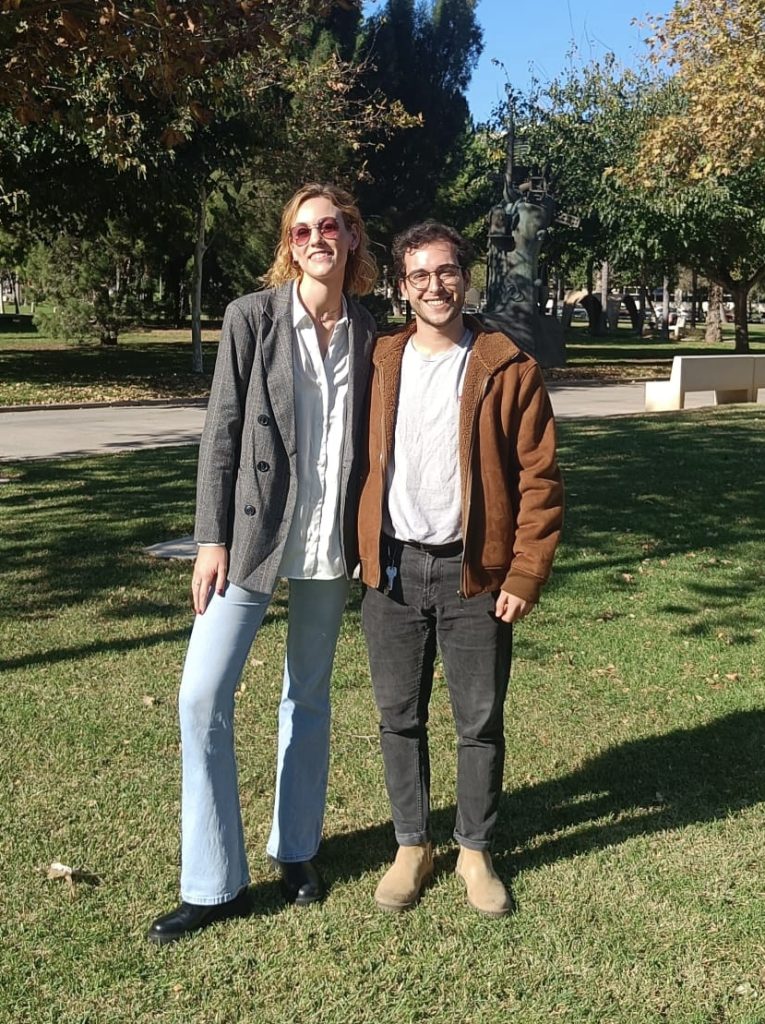 Irene Pi-Martín and Enrique González-Mateo, PhD students at the Medical and Industrial Ultrasound Laboratory (UMIL), have been awarded the “Andrés Lara” prize, sponsored by the Spanish Society of Acoustics and the Portuguese Society of Acoustics. The Prize has been awarded jointly to the best paper by a young researcher on applications of acoustic science and technology among those presented at the 54th Spanish Congress of Acoustics -TECNIACUSTICA 2023, celebrated in Cuenca (Spain) last October 18-20, 2023.
Irene Pi-Martín and Enrique González-Mateo, PhD students at the Medical and Industrial Ultrasound Laboratory (UMIL), have been awarded the “Andrés Lara” prize, sponsored by the Spanish Society of Acoustics and the Portuguese Society of Acoustics. The Prize has been awarded jointly to the best paper by a young researcher on applications of acoustic science and technology among those presented at the 54th Spanish Congress of Acoustics -TECNIACUSTICA 2023, celebrated in Cuenca (Spain) last October 18-20, 2023.
Enrique González-Mateo has been awarded for his work “Improving SNR and bandwidth of shear-wave displacements via modulated force excitation”, in which he proposes novel pulse compression strategies for shear-wave elastography, a quantitative medical imaging technique for mapping tissue stiffness. With this technique, elastography allows mapping tissue elasticity using lower energy levels. By reducing mechanical energy, Enrique aims to access tissues such as the lung, which today can be damaged when using ultrasound elastography. The work has been supervised by Noé Jiménez and Francisco Camarena, as part of the research activities of the CSIC Global Health Platform (PTI Global Health SGLSGL210303046) funded by the European Commission – NextGenerationEU (EU Regulation 2020/2094).
Irene Pi-Martín has been awarded for her work “Photoacoustic imaging using nanoparticles of covalent organic networks (NCOFs) as a contrast agent”, in which she explores the use of novel contrast agents for photoacoustic tomography imaging, a medical imaging modality that provides molecular contrast. The use of these organic contrast agents is convenient for the reduced toxicity of these substances due to their high biocompatibility, which opens the doors to use them for clinical applications. Using biocompatible covalent organic frameworks, Irene aims to image human tissues with molecular contrast using ultrasound. The research has been carried out under the supervision of Alejandro Cebrecos and Juan José García-Garrigos, at I3M, as part of the research activities of the EARMAP Project (PID2019-111436RB-C22), funded by the Ministry of Science, Innovation and Universities “Proyectos Nacionales Retos i+d”.
